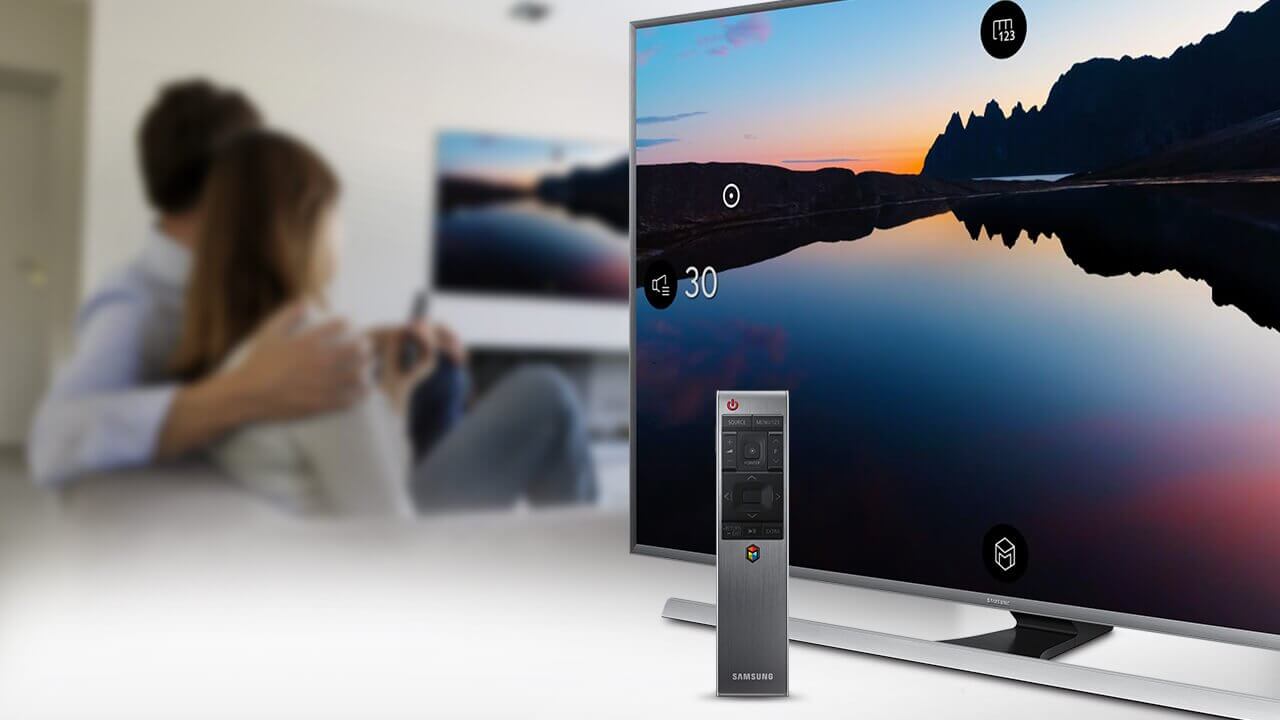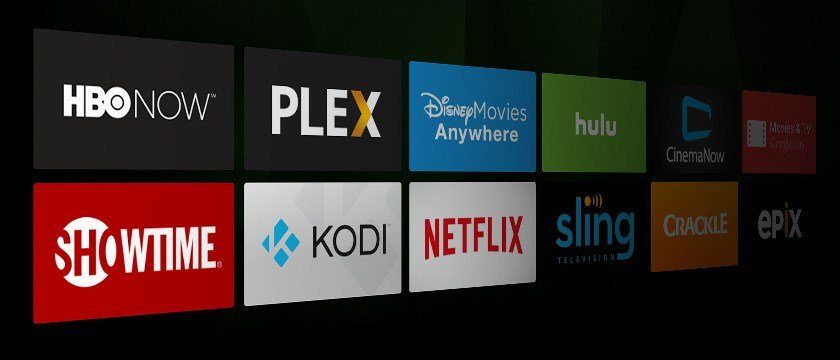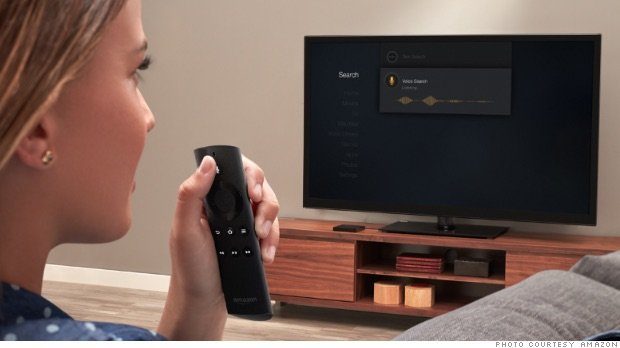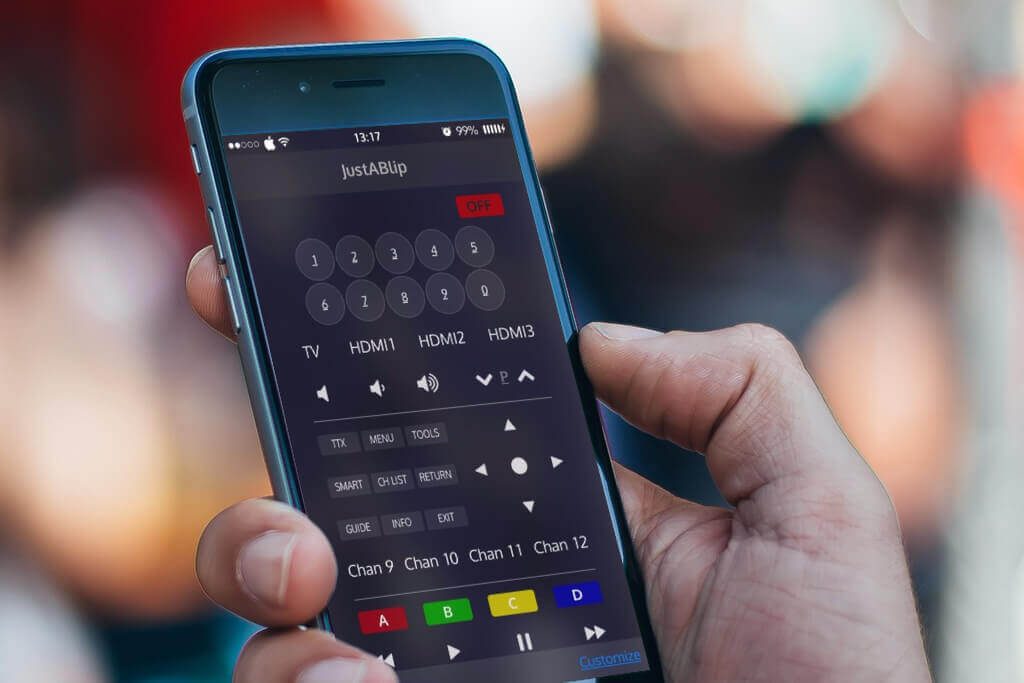The world of smart gadgets can be a confusing place. With so many up-and-coming technologies, it’s easy to feel behind the ball. Luckily, when it comes to “smart” gadgets, they all have one easy-to-remember quality …
When the word “smart” is seen in front of any form of technology, it generally implies that it’s connected to the internet. For example, you can use your smartphone to connect to WIFI and search the web, access GPS and use other functionalities that live on the internet.
So, a smart TV is simply a television that’s connected to internet, whether it’s wireless or wired. It’s a rather straightforward idea, with greater benefits than you might assume.
For individuals who are new to the technology, the idea of hooking a television up to the internet seems confusing and unneeded. Many people are cutting the cord, though, and for good reasons. When you have a TV with internet, you can experience a lot of extra features and pay less than you would for an inferior cable plan.
If you need help setting up your Smart TV then reach out to HelpCloud Technician by-the-hour and we’ll walk you through the setup!
1) Connect Properly
The first thing to do with your new smart TV is to connect it to the internet. When it comes to doing this, you have two options … Your first choice is to connect to your home’s WIFI network.
Look on your smart TV’s box to ensure it has WIFI capabilities. As long as it has this functionality, hooking it up to the internet should be rather straightforward.
For information on how to connect your specific TV to your WIFI, you can call your TV’s manufacturer for a step-by-step guide. Another option is to search the internet and see if there’s any written content or videos that’ll show you how you can connect your television.

Once a connection is established, you might want to think about where your router is placed. If your router is on another floor or is blocked by many objects, you might find that your TV runs slowly. Chances are it’ll take some repositioning before you find a good router location that serves all of your smart devices.
Smart TVs that don’t connect to WIFI, or are not getting a strong wireless signal, can be hardwired. This option is simple to set up, it’s reliable, and it’s often faster than WIFI. To connect your TV, first find its Ethernet port, which is often on the back. Then, connect an Ethernet cable from your router to your TV.
Navigate to your TV’s menu, and find the settings or network settings option. Within this menu, you should see a selection that allows you to enable wired internet. As soon as this is chosen, you’ll need to enter your WIFI password to officially connect.
Individuals who can’t move their routers can use “powerlines” to improve their connections. A powerline is made up of two adapters and two Ethernet cables. Often, you can find full powerline kits for sale online.
Once you have all the necessary components, you’ll plug your adapters into power sockets. One will be in the same room as your router, and the other will be in the same room as your TV. You’ll then use an Ethernet cable to connect the first adapter to your router.
The second Ethernet cable will run from the second powerline adapter directly into your Smart TV. The internet signal will then travel through your electricity cables, improving your connection.
Another option that some people use over a powerline kit is a router extending/boosting device.
2) Understand Applications
World-renowned applications should be available on your smart television. Netflix is one such offering, which allows you to choose from an impressive selection of TV shows and movies. They’ve also recently been producing their own exclusive productions, like House of Cards, the political drama, that are only available on their platform.
Overall, Netflix is one of the largest streaming services around. However, it’s probably not the only application you’ll want to use. Hulu is another wonderful option that often competes head-to-head with other big-name streaming services, like Netflix and Amazon Prime.
Hulu really shines when it comes to offering the latest-and-greatest TV offerings. If you want to be able to watch shows without advertisements the day after they air, Hulu is a must-have application.
After you review popular smart TV applications and understand their offerings, you’ll want to reference your user manual, search online or call your TV’s customer support line to understand the steps you need to take to download applications on your device.
3) Take Advantage of Artificial Intelligence
Smart TVs do more than connect to the internet. Many of them include artificial intelligence (AI) that learns your habits. If you’re someone who watches the news daily at a specific time, your TV will start to recognize your viewing preference and guess what channel you’ll want to watch based on the clock.
Some devices will also analyze your viewing patterns and suggest other shows or movies suited to your preferences. Smart TVs can use machine learning and various algorithms to help turn you on to shows you might not have otherwise selected.
When you watch things on your television, the smart TV can analyze nuanced threads within your content and then make specific recommendations that are catered to your preferences.
4) Use Voice Search
Smart TVs are designed to be user-friendly. That being said, it can be hard to learn a new technology. It’s also difficult to remember where you put the remote sometimes.
With a smart TV, you don’t need to have an in-depth knowledge of your remote or TV’s capabilities up front. Many devices come with voice search. This tool can help you operate your television without ever needing to push a button.
Using your voice, you can turn your TV off, on, change the channel, select an app and look around the web with simple voice commands.
5) Watch 3D Movies
People often have strong opinions when it comes to 3D movies. Some think they’re a passing fad, and others believe they’re the future. Regardless of which side you currently stand on, watching a 3D movie on your smart TV at least one time is a worthwhile pursuit.
Some movies work really well in 3D, and viewing them in this format is preferable to 2D. Also, when you’re at home, you generally won’t need to pay more for a 3D movie. In the theater, watching 3D is more of a risk, as you must pay extra for your ticket. From the comfort of your own couch at the same price, giving 3D movies a shot is a good idea that might pay off in the long run.
6) Access Facebook and Twitter
Every time you need to take a break from television, you don’t need to grab your smartphone, tablet or computer for entertainment. With a smart TV, you should be able to access all of your favorite social media networks on your television.
Whether you like Facebook, Twitter or Instagram, you can use your remote or voice control to see what’s happening, post updates and catch up with your friends.
Many smart TVs even allow you to share what you’re watching on your social channels. This way, you and your connections can talk about the latest shows as well as the greatest classics.
Wait, Where’s My Remote?
Some smart TVs do not have remotes. Instead, they are designed to be controlled by a smartphone or a tablet.
With the proper application, you should be able to change channels, adjust volume and more from your tablet or phone. This is beneficial for many users, as it’s one less remote they have to worry about and remember how to use.
Another upside to this feature is that it often allows you to stream all of your TV’s content on your smartphone. So, if you ever want to watch something on your tablet or phone instead of the TV, you can do so at no additional cost.
Additional Upsides
Today, you have more technology at your fingertips than ever before. From smart cars to smart pill boxes, everything is being made easier with the internet and AI.
Albeit it a small change, transitioning to a smart TV can improve every aspect of your viewing experience and ease. Additionally, it can help save you money in the long run and introduce you to things you wouldn’t otherwise be able to experience.
After you purchase your first smart TV, you’ll need to learn how to take advantage of its many functions. The tips above are enough to get you going, but as time goes on, you’ll find that there are many more upsides to your new technology.
Who knows, your new device might even increase your quality of life. The ability to use your voice to control your TV might seem foreign now, but it could serve as a tool that negates the learning curve you’d otherwise have when learning how to use a new remote or application.
In short, a smart TV is a small change that can have big rewards. Once your television is up and running, you will likely become increasingly interested in other smart devices that can further improve your life.



